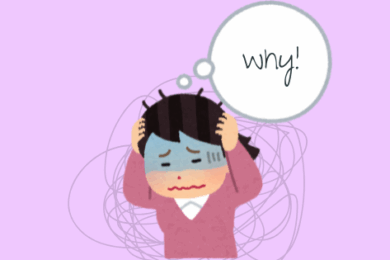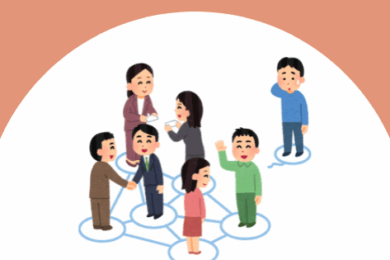Jesus was the biggest social revolutionary. He was all in for social justice. Yet, His revolution didn’t include a political campaign or an upheaval of the masses against the government. Although unrecognized by most; without a doubt His unconventional take on justice defied the status quo, contradicted human logic, and transcended social expectations.
The Savior came into this world during a time of political turmoil. The social injustices to which the Jews were victims of -especially the vulnerable groups and lower class- were nothing short of unacceptable, and the Jews were tired. They were tired of the abuse and sick of the oppression that was inflicted upon them by their authorities and the Roman government daily.
Unfortunately, things are not that different today.
We live in a world where social injustice seems to be the norm. Watching the strong take advantage of the weak is not only infuriating but sickening to say the least. Thousands of years of sin and wickedness weight heavily on humanity, and it shows.
After Jesus fed the multitude in John 6, the crowd wanted to proclaim Jesus as their new king. However, His Kingdom was not of this earth. The Jews had expected Jesus to liberate them from the Roman oppression. They actually expected Him to overthrow the government. But He had come to this world to do so much more. Jesus had come to liberate a fallen humanity from the smothering chains of sin
I don’t know about you, but I often find myself caught in the trap of either harboring ill feelings against a corrupt system or Christian apathy, and neither are ok.
So how should we go about it?
Social Justice is a big topic with a lot of room to delve into, but here are 3 basic principles we can draw from the life of Jesus that are still relevant today when it comes to dealing with social issues.
1. Attitude– Is my attitude hateful?
Blessed are the peacemakers, for they will be called children of God
-Matthew 5:9
One of the first questions you should ask yourself when dealing with social justice is this: Is my attitude hateful?
The biggest “social injustice” of all times happened to Jesus Himself. John 18-19 recounts the very shady and may I add “unconstitutional” trial of Jesus Christ. Nonetheless, throughout His ordeal, Jesus didn’t utter one harsh word against His inflictors.
That is because a heart that is filled with hatred, hostility, and resentment; will exude just that when it is mistreated. On the contrary, a heart that is filled with love, peace, and compassion reacts with a “Father forgive them, for they don’t know what they are doing.”
But oh boy is this hard!
However, when looking at things through the lens of Ephesians 6:12, this attitude makes more sense.
“For we wrestle not against flesh and blood, but against principalities, against powers, against the rulers of the darkness of this world, against spiritual wickedness in high places“
Jesus didn’t fight the social injustice of His time in the way the Jews expected Him to. Instead, Jesus fought against social injustice by tending to the needs of the sick, the broken, and the neglected. In other words, He was so busy doing good, that He had no time to “throw shade” on the government.
He spent more time addressing the victims of a wicked and corrupt system rather than attacking the wicked and corrupt system itself. That’s because when your indignation at social injustice is rooted in pure empathy towards the hurt and the helpless, your top priority course of action is to aid the ones in need. Because real change needed to happen on an individual heart basis, His ministry concentrated on reaching out to individuals.
2. Responsibility- Am I fulfilling my civic duties?
And Jesus answering said unto them, render to Caesar the things that are Caesar’s, and to God the things that are God’s. And they marveled at him.
– Mark 12:17
In one of the multiple occasions when the Pharisees wanted to set up a trap for Jesus, they threw the following question at him: “Is it lawful to give tribute to Caesar or not?” To which Jesus replied: “Give to Caesar what is unto Caesar and to God what is God’s”
Being a responsible Christian also means complying with the laws of the state. This includes making well informed voting decisions, denouncing crimes, testifying, cooperating with the authorities, paying taxes, etc. As long as these laws don’t interfere with the law of God, it is our responsibility to abide by them.
3. Action –Am I tending to the needs around me?
Religion that God our Father accepts as pure and faultless is this: to look after orphans and widows in their distress and to keep oneself from being polluted by the world
– James 1:27
There is nothing wrong with wanting to change the world. On the contrary, caring about justice is rather noble. It means you are sensitive to the pain of others, and that is a good thing, it’s a Godly thing.
However, it can sometimes be easy to get carried away on a train of idealism and good intentions in an attempt to fix all injustices out there that we fall into the trap of failing to recognize the injustices in here. There are social issues happening all around us, right under our nose.
How am I promoting justice within my circles? Am I a proactive member in my community? What am I doing to alleviate the suffering around me? Am I ministering to the specific needs of my neighborhood? Am I even aware of them?
If you live nearby any civilized area, chances are there will be a victim of social injustice around you to whom you can be a blessing. And even if there are no humans around you, then there will be animals that need their rights looked after or an Eco-system to protect.
Beware of the “I’ll pray for you” Syndrome
At the sight of the moribund stranger, the good Samaritan didn’t just stop, take pity on the beaten man, get down from his donkey, lean close to the man, and kindly whisper: “I’ll be praying for you, brother” to then continue on his journey. Imagine if that had been the case!
Thankfully he did more than that. The Samaritan did everything within his possibilities to aid the stranger, and even went the extra mile to ensure his well-being. Now, aren’t we as Christians supposed to display the same kind of empathy toward others regardless of their background or ideology?
In other words, praying for each other is good, praying for each other is necessary; but prayer and good intentions must be accompanied by deeds. Because sympathy moves to compassion; but empathy ignites action. Maybe someone in need is praying today. And maybe, the answer to that prayer is you.
You may also like:

















One thought on “Christians and Social Justice: 3 Things to keep in mind”